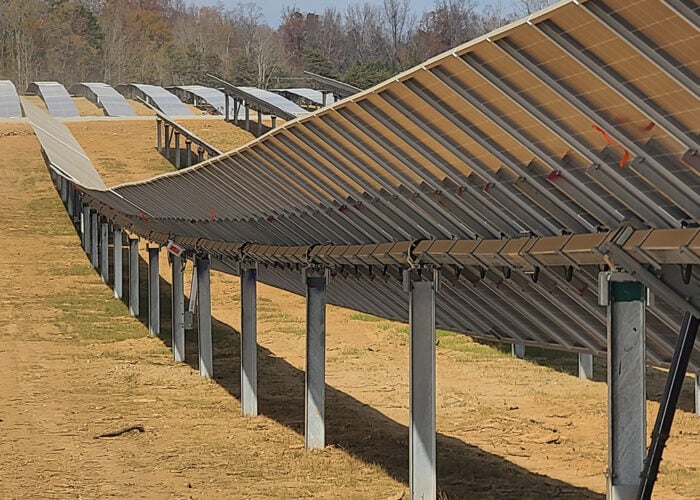
Australia-based solar module recycling group Lotus Energy has confirmed it will build a US$250 million recycling facility in Saxony, Germany.
Lotus Energy, which claims it opened Australia’s first solar module recycling facility in 2021, will be supported by Invest Region Leipzig – backed by the German federal government and the state of Saxony – to develop the 24,000 square metre facility.
Unlock unlimited access for 12 whole months of distinctive global analysis
Photovoltaics International is now included.
- Regular insight and analysis of the industry’s biggest developments
- In-depth interviews with the industry’s leading figures
- Unlimited digital access to the PV Tech Power journal catalogue
- Unlimited digital access to the Photovoltaics International journal catalogue
- Access to more than 1,000 technical papers
- Discounts on Solar Media’s portfolio of events, in-person and virtual
The Melbourne-headquartered company announced the project on LinkedIn. The site will feature a green roof, its own rail link, and over 2MW of solar PV. It will also incorporate biodiversity measures into its design through the establishment of beehives and the planting of local flora.
Other than that, little detail is known about the facility, but Lotus Energy said that more details will be announced in the future.
According to its website, Lotus Energy uses its Lotus Energy Transfer Network (LET-Net) to help transfer energy and its economic value across borders. It has numerous industry partners in the space, including SolarEdge, flow battery maker Redflow, and LG Chem.
Last year, the company inked an agreement with Neo Battery Materials, a Canadian silicon anode developer, to explore opportunities in North America to establish a silicon recycling presence.
The partnership comes as the European Council confirmed in March 2024 that solar module manufacturers will bear responsibility for module waste disposal and recycling in the EU.
The international need for solar PV recycling
As the international solar PV market begins to mature, access to sufficient recycling facilities will be paramount to ensure a circular economy. Several companies, such as Lotus Energy, have been established to this end.
PV Tech Premium has published several features over the last year investigating the issue. The upshot is that recycling activity has emerged more prominently in the US than in Europe.
Dedicated PV recycling firm Solarcycle recently signed a deal with Korean-owned solar manufacturer Hanwha Qcells to recycle modules produced at Qcells’ new US manufacturing facility. In July last year, the US Department of Energy announced US$25 million in funding for solar waste reduction and lifecycle technologies.
Although it is very much an international issue, Australia has also seen a growing emphasis on scaling module recycling.
Highlighting the extent of the issue, Potentia Energy, a joint venture co-owned by Enel Green Power and INPEX Renewable Energy Australia, revealed that around 1.4 million solar PV modules will reach their end-of-life in 2025 across Australia, highlighting the urgency for recycling initiatives. It is worth noting that Potentia Energy is the new name of Enel Green Power Australia, following a rebrand at the end of 2024.
These issues were further highlighted by Australian module manufacturer Tindo Solar’s CEO, Richard Petterson, who exclusively told PV Tech Premium that if Australia installed around 1TW of solar modules in around 25 years to keep the assets running, the nation would need to recycle around 40GW of modules each year.
In recent months, several key deals have been penned to tackle the growing issues. For instance, Queensland stepped up its efforts to recycle solar PV modules in 2024 via a scheme expected to save about 26 tonnes of waste from entering landfills. Launched in conjunction with Australia’s Smart Energy Council, the Solar Panel Stewardship programme was introduced with six solar module collection sites across the state.







